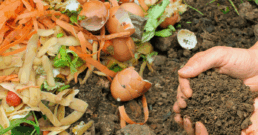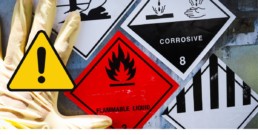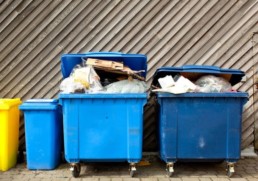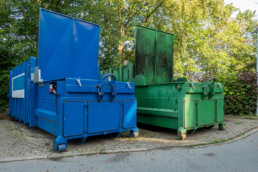Environment agency confirms new charging approach for simpler recycling
The Environment Agency (EA) has confirmed changes to how it will recover the costs of regulatory work linked to the simpler recycling reforms, following a public consultation.
Under the new approach, the EA will apply a £118 hourly “time and materials” charge where regulatory work is required due to non‑compliance. The charge applies only to businesses and occupiers of relevant non‑domestic premises that fail to meet the recycling requirements.
Why the change?
The updated charging model is designed to ensure that the cost of enforcement falls on non‑compliant businesses, rather than those that meet their obligations. This reflects the polluter pays principle and aligns with how the EA recovers costs for other technical regulatory services.
The hourly rate is based on an assessment of the staff time and activities needed to carry out compliance checks and enforcement work.
Consultation outcome
Feedback on the proposals was mostly positive, with respondents commenting on fairness, customer impact, environmental protection, and the design of the charging scheme. After reviewing all responses, the EA decided to implement the charge as proposed, without changes.
When it takes effect
The revised charges will apply from 3 February 2026. The updated charging scheme has now been published on GOV.UK.
What this means for businesses
- Compliant businesses will not be charged
- Non‑compliance may result in hourly regulatory charges
- Early compliance helps avoid additional costs and regulatory intervention
For businesses, the message is clear: meeting simpler recycling requirements reduces both regulatory risk and cost.
The EA have published and updated their documents regarding charges (these charges started from 3/2/2026) Read the full details here:
Simpler Recycling Reform: Food Waste Disposal
As part of the Simpler Recycling Reform, it's now essential for businesses with more than 10 full-time employees (or equivalent) to follow the new regulations, including disposing of food waste separately. This includes tea bags, leftovers, out-of-date food, and more. Effective food waste management can significantly contribute to environmental sustainability and reduce landfill usage.
Why separate your food waste?
Separating your food waste can have numerous benefits:
- Environmental impact: Proper food waste disposal reduces methane emissions from landfills, significantly contributing to climate change.
- Resource recovery: Food waste can be composted, turning it into valuable nutrient rich soil that can be used in agriculture and gardening.
- Reducing landfill waste: By diverting food waste from landfills, you will also save money, as removing food from your general waste will significantly affect the amount you have to pay to dispose of it. It costs more in landfill taxes than it does to take food waste to an AD plant.
What can be disposed of as food waste?
To ensure the effectiveness and efficiency of the new food waste recycling regulations, following the guidelines about what items can be included and which should be avoided is crucial. This helps maintain the quality of the compost produced and prevents contamination.
- Fruit and vegetable scraps: peels, cores, and any other parts of fruits and vegetables.
- Meat and fish scraps: including bones and shells.
- Dairy products: cheese, yoghurt, and other dairy items.
- Bread and pastries: any baked goods.
- Eggshells: crushed or whole.
- Coffee grounds and filters: including tea bags.
- Leftover food: cooked or uncooked food remnants (including out-of-date food).
What shouldn't go in
- Metal: no metal items.
- Glass: glass containers or fragments are not permitted.
- Plastic: non-biodegradable plastic items.
- Hazardous waste: chemicals, batteries, and other hazardous materials.
- Pet waste: cat litter and animal faeces.
- Garden waste
- Non-compostable biodegradables: bioplastics that do not break down in compost.
What happens to food waste?
All of the food waste we collect is processed through anaerobic digestion facilities. This process generates renewable energy and produces organic fertiliser, resulting in greenhouse gas savings that are six times greater than composting.
What could be more rewarding than knowing that your food waste is being transformed into renewable biogas and electricity, making your premises more sustainable? It also produces organic fertiliser that enriches our soils and supports the growth of food.
Further Information
Food and drink waste hierarchy: deal with surplus and waste
Simpler recycling: workplace recycling in England
Or you can get in touch with us if you have any further questions.
How has your business adapted to the new Simpler Recycling Reform?
Almost a month in, how has your business adapted to the new Simpler Recycling Reform?
We’ve pulled together a quick round up of what’s what in the world of simpler recycling. As we all know the law in England around recycling recently changed, requiring businesses to recycle a core set of recyclable materials.
When did it happen?
- 31 March 2025 – for businesses with 10 or more full-time equivalent (FTE) employees.
- 31 March 2026 – Local authorities must collect all dry recyclable materials and food waste from households.
- 31 March 2027 – if you have fewer than 10 FTE employees in total across all of your premises.
- 31 March 2027 – Inclusion of plastic film packaging and plastic waste streams.
What needs to be recycled?
You should be recycling the following materials.
- Food waste
- Paper and card
- Plastic bottles, pots, tubs and trays, and cartons (cleaned for DMR)
- Metal tins and cans, foil and empty aerosols
- Glass bottles and jars
This is a legal requirement and ignoring the changes could result in compliance action being taken against your business.
Who should be following the new guidelines
All workplaces in England, including:
- Businesses
- Care homes
- Educational establishments
- Healthcare establishments
- Places of worship
- Penal institutes
- Charity shops
- Residential hostels
- Premises used for public meetings
Still unsure what you should be doing?
- Speak to Footprint Recycling or your waste collector to check if your current services meet the requirements or if you need to make any changes (waste audit).
- Tell your staff about any new processes and how to recycle correctly. This might include training sessions and internal campaigns, including signage on bins, posters, email footers, etc., as a reminder.
- Decide how frequently recycling and food waste collections should be, based on the amount of waste you produce.
Further information
You should check the government website for guidance.
Defra has funded the Waste and Resources Action Programme (WRAP) to develop the Business of Recycling Website . This provides guidance and resources for specific business sectors and non-domestic premises, such as schools and hospitals, on making the required changes.
Frequently Asked Questions
What is changing?
Recycling law has changed in England. All workplaces (businesses and relevant non-domestic premises) must recycle the same core materials.
Why is the UK Government making these changes?
The UK Government want to move to a future where we keep our resources in use for longer and reduce waste to landfill. Increased recycling and separate collection of food waste will help to reduce carbon emissions associated with waste and will support the nation's path to net zero.
What do I need to do?
You will need to ensure that your waste collection service arranges for recyclable materials to be collected separately from your general waste and present your waste in accordance with Simpler Recycling requirements. The recyclable waste streams are plastic, metal, glass, paper and card, and food waste, and you can find more details on what materials should be recycled in the Environment Act 2021
Do volunteers working at a premises count as Full Time Equivalent employees?
Volunteers are not included in determining an organisation's Full Time Equivalent employee count. This includes organisations that have volunteers across multiple premises.
Does the number of employees relate to per premise or the business?
Employment is measured per business, not per premise. Thus, multi-branch enterprises with over 10 FTE across various units must implement the changes and are not exempt.
My workplace has a combination of full and part-time staff. How do I know whether I fit in the micro-firm definition?
A business is a micro-firm if the number of full-time equivalent employees is less than ten. You can determine whether an organisation qualifies as a micro-firm by adding the number of full-time staff and a fraction based on pro-rata hours part-time staff members have worked in the qualifying 12-week period.
What will happen if I do not recycle correctly?
The Environment Agency will be able to issue a compliance notice against anyone who is a party to arrangements for collection made under section 45AZA or section 45AZB (industrial or commercial waste) of the Environmental Protection Act 1990 that is not compliant with the requirements.
Compliance notices can be issued against anyone not presenting the waste separately per the arrangements agreed with the waste collector. This will often be the waste producers (e.g. a business) but may also be, for example, landlords or facilities management companies presenting waste on behalf of the waste producer.
It is an offence to fail to comply with a compliance notice, and you may be liable to pay a fine on conviction.
I do not produce much food waste – do I still need a separate collection?
All workplaces producing food waste (including teabags etc.) will need to arrange for separate collection in accordance with the new Simpler Recycling requirements. This is regardless of the volume, and applies to all workplaces, not just those that serve/sell food or have catering facilities.
Workplaces have flexibility to decide on the frequency of collections to align with the volume of waste they produce, so it is possible to arrange for infrequent collections if this suits the needs of the workplace best. Workplaces could also consider sharing facilities with neighbouring premises where quantities are small, with the agreement of the neighbouring premises and the waste collector.
Do I need to provide recycling and food waste bins front of store for customers?
Workplaces will be required to present their waste for collection in accordance with the new requirements, however businesses won't be obligated to provide a bin for their customers. If businesses choose to provide bins, they will be required to separate out the waste collected where it is deemed to be relevant waste (waste which is similar in nature and composition to household waste) and present it according to their waste collection arrangement.
I'm a charity run by staff and volunteers. Do the new requirements apply to my organisation?
Yes. Simpler Recycling requirements will apply to all premises that produce household-like commercial waste (similar in nature and composition to household waste). This includes charities, and all relevant non-domestic premises, including those registered as charities.
We use a compost system for food waste. Is this still allowed?
You will be able to continue to compost your food waste. However, if you produce any additional food waste you do not compost yourself, you must arrange for this to be collected separately for recycling.
Businesses should take note of separate guidance on composting food waste at commercial premises, which can be foundon the Government website.
Is there any funding available for businesses to implement these changes?
No, businesses are expected to continue to pay for their waste management services. However, we will be providing advice and guidance for workplaces as they transition to compliance with the new recycling requirements.
The dangers of hazardous waste and how to do it safely
Introduction
Hazardous wastes are those which are dangerous and difficult to handle. If your business produces hazardous waste you have a duty of care to make sure it is disposed of properly.
Proper disposal of hazardous waste is crucial for the safety of people, animals, and the environment. Hazardous waste, if not handled correctly, can lead to severe health risks, contamination of soil and water, and dangerous chemical reactions. This document provides an in-depth understanding of the dangers associated with hazardous waste and offers guidelines on how to dispose of it safely.
The Dangers of Hazardous Waste
Hazardous waste encompasses many materials that pose significant risks due to their chemical composition, flammability, reactivity, or toxicity. Below are some of the primary dangers associated with hazardous waste:
Health Risks
- Exposure to Toxic Substances: Direct contact with hazardous waste can result in skin burns, respiratory problems, and poisoning. Many hazardous materials can be absorbed through the skin or inhaled, leading to serious health issues.
- Long-term Health Effects: Repeated exposure to certain hazardous materials, such as asbestos or heavy metals, can lead to chronic illnesses, including cancer, neurological disorders, and reproductive issues.
Environmental Impact
- Soil and Water Contamination: Hazardous waste can seep into the soil and groundwater, contaminating drinking water sources and agricultural land. This contamination can persist for years, affecting ecosystems and human health.
- Air Pollution: Improper disposal methods, such as incineration without appropriate controls, can release toxic fumes and particles into the air, contributing to air pollution and respiratory ailments.
Fire and Explosion Hazards
- Flammable Materials: Certain hazardous wastes, such as solvents and chemicals, are highly flammable and can easily ignite, causing fires and explosions that put lives and property at risk.
- Reactive Substances: Some hazardous materials can react violently with other substances, leading to dangerous situations that can result in explosions or release toxic gases.
How to Dispose of Hazardous Waste Safely
Safe disposal of hazardous waste requires adherence to specific regulations and best practices. Below are the key steps to ensure the safe handling and disposal of hazardous materials in commercial settings:
Identify Hazardous Waste
Properly identifying hazardous waste is the first step in ensuring its safe disposal. This involves:
- Labeling and Segregation: Label all hazardous materials and segregate them from non-hazardous waste. This helps prevent accidental mixing and ensures that each type of waste is handled appropriately.
- Understand hazardous materials, their properties, risks, and safe handling procedures.
- Further guidance for workplace health and safety can be found at The Health and Safety Executive (HSE).
Use of Appropriate Containers
The containers used for storing and transporting hazardous waste must be suitable for the specific type of waste, following all relevant regulations for proper storage and disposal. Key considerations include:
- Durability: Use durable containers that are resistant to the chemicals they will hold. This prevents leaks and spills.
- Sealing: Ensure containers are properly sealed and labelled to prevent the release of hazardous substances.
Compliance with Regulations
Adherence to regulations is essential for the safe disposal of hazardous waste:
- These regulations apply to those who produce, broker/deal, carry and receive hazardous waste to keep, treat or dispose of. Hazardous waste must be accompanied by correctly completed paperwork called a consignment note, or hazardous waste consignment note (HWCN). The note must be prepared before any hazardous waste is moved and is required for all movements of hazardous waste.
- Record-Keeping: Maintain accurate records of the types and quantities of hazardous waste generated, as well as the disposal methods used. These ensure the traceability of the waste from origin to disposal.
Training and Education
Educating employees about the dangers of hazardous waste and proper disposal methods is crucial for maintaining a safe work environment. Training programs should cover:
- Hazard Identification: Teach employees how to identify hazardous materials and understand their risks.
- Emergency Procedures: Train employees on emergency procedures in case of spills, leaks, or exposure to hazardous substances.
Working with Footprint Recycling
Working with a professional waste management company will ensure that hazardous waste is disposed of safely and in compliance with regulations. We have the expertise to handle hazardous waste safely and will ensure you have the right equipment for safely transporting, treating, and disposing of hazardous materials.
All businesses have a responsibility to dispose of hazardous waste safely. By understanding the dangers of hazardous waste and following best practices for its disposal, businesses can protect their employees, the public, and the environment. Proper identification, appropriate containers, regulatory compliance, professional waste management services, and employee training are all essential components of a comprehensive hazardous waste management strategy.
Call us on 01484 660770 or email our team if you'd like to find out more.
INTRODUCING THE NEW 2025 MANDATORY WASTE LEGISLATION IN ENGLAND
In October 2023, the UK Government introduced new Simpler Recycling legislation as part of the Environment Act 2021 to improve waste collection and recycling in England.
The new legislation aims to clarify what materials can be recycled, standardise recycling practices at home, work, and school, reduce landfill waste, tackle illegal waste disposal, and increase recycling rates.
As part of the Simpler Recycling legislation, delivery timelines have been set:
- 31 March 2025 - Non-households
Businesses (more than ten employees) need to separate dry recyclables and food waste. - 31 March 2026 - Households
Local authorities must collect all dry recyclable materials and separate weekly food waste collections (which can be combined with garden waste) - 31st March 2027 - Households and non-households
Inclusion of plastic film packaging and plastic bags in the plastic waste stream - 31st March 2027 - Micro-businesses
Businesses with fewer than ten employees must recycle all specified waste streams.
From the end of March 2025
Businesses with ten or more employees must separate dry recyclables into specific containers and arrange food collection separately.
What does this mean for your business?
All mixed recycling, including cardboard, plastics, glass, and metal, should be carefully separated and disposed of in accordance with the new guidelines to ensure that each material is recycled appropriately and to minimise environmental impact.
If a business produces more than 5kg of food waste per week, it must arrange a separate collection by licensed waste carriers. This includes biodegradable materials from processing or preparing food, such as inedible parts like bones, eggshells, fruit and vegetable skins, tea bags, and coffee grounds. The new legislation excludes micro-businesses (businesses with fewer than ten full-time equivalent employees).
According to the official government response, food waste collected must undergo anaerobic digestion treatment. This process generates biofuel, which can be used for energy, while digestate is a nutrient-rich substance produced by anaerobic digestion that can be used as a fertiliser, helping to form a circular economy.
To comply with the new legislation, your business must implement the new waste requirements, including storage and collection processes, by 31 March 2025. Businesses that fail to comply with the new regulations will face fines, enforcement actions, and potentially prosecution.
Compliance ensures that your business will avoid financial penalties, demonstrate corporate responsibility, and improve sustainability credentials. It’s also an opportunity to review your services and save costs.
How can Footprint Recycling help?
- Footprint Recycling will conduct a thorough waste audit, evaluating your current processes, staff awareness, equipment, sustainability, waste streams, volumes, service frequency, bin types, and costs.
- We will ensure compliance with new regulations and identify the best solutions for your business. We will help establish suitable systems to maintain compliance and prevent business disruptions.
- Our team will provide training to ensure employees understand the importance of new practices and know how to separate food waste correctly.
- We will provide food waste collection services and arrange appropriate collection schedules.
- We can assist you in achieving significant cost savings by reducing general waste volume and the associated costs of waste removal and recycling.
- We will generate reports that showcase your sustainability efforts, demonstrating your dedication to reducing environmental impact.
- We will support your efforts to comply with regulations, enhance your company’s brand reputation, particularly among environmentally conscious consumers and investors, and explore partnerships with local charities to donate surplus food.
By embracing these innovations, businesses can comply with regulations and turn food waste management into a competitive advantage.
Get in touch to discuss your requirements.
Starting from 6th April 2024, new regulations will be introduced in Wales that will require all non-domestic premises, such as businesses, charities, public sectors, and those who collect, keep, treat, or transport waste from non-domestic premises, to separate key recyclable materials.
Non-domestic premises must separate and present nine specified recyclable waste materials in a minimum of six separate recyclable waste streams. These materials are:
- glass
- cartons and similar, metal and plastic
- paper and card
- food waste from premises that produce 5 kilograms or more of food waste in seven consecutive days
- unsold small waste electrical and electronic equipment
- unsold textiles
Bans will also be in place from 6th April 2024, on the disposal of food waste to sewer from non-domestic premises, specified separate recyclable waste streams going to incineration plants and landfills, and all wood waste going to landfill.
These changes to the law aim to help the country work towards becoming a zero-waste nation and reducing carbon emissions by 2050. Separating and sorting recycling in workplaces should ensure greater volumes of high-quality recycling are produced and much less waste sent to landfill and for incineration.
Failure to comply with the separation requirements will be considered an offence, and there will be no upper limit on the courts' power to fine. Instead of criminal prosecution, a civil sanction may be issued for non-compliance with the separation requirements.
While we have a legal responsibility under the Environmental Protection Act 1990 'duty of care', should England adopt these more stringent regulations regarding separation of recyclable waste in order to achieve a greener future and promote sustainability? Many organisations in England currently do not have a waste strategy in place and do not separate recyclable waste from non-recyclable. However, commercial recycling plays a crucial role in ensuring sustainability. It is important for businesses to actively participate in these efforts.
For more detailed information about the Waste Separation Requirements (Wales) Regulations 2023, please refer to the Welsh Government code of practice. If you're a business and are looking to adopt a waste and recycling strategy get in touch.
As a business how can we support World Earth Day?
World Earth Day is an annual event celebrated on April 22nd to raise awareness and encourage action to protect the environment. It is a day to remind us of the importance of sustainable living and how we can make a difference in the world.
Businesses play a crucial role in the fight against climate change and can support World Earth Day in several ways.
Firstly, businesses can promote sustainable practices within their operations. For example, they can adopt environmentally friendly policies such as reducing waste, using renewable energy sources, and conserving water. They can also encourage employees to reduce their carbon footprint by using public transport or cycling to work. By taking such steps, businesses can reduce their environmental impact and help mitigate climate change.
Secondly, businesses can partner with environmental organisations to support their activities. For example, they can sponsor tree planting or countryside/beach clean-up activities. They can also donate to organizations that work to protect the environment or support research on climate change. Such partnerships can raise awareness of the environmental challenges facing our planet and encourage individuals to take action.
Thirdly, businesses can use World Earth Day to launch or promote sustainable products and services. They can showcase how their products are eco-friendly and sustainable and how they are contributing to the fight against climate change. This can be an excellent way for businesses to increase their brand visibility and promote their commitment to environmental sustainability.
Fourthly, businesses can organize events or campaigns that promote environmental sustainability. For example, they can organise a cycling or walking event to promote low-carbon transport. They can also organise educational campaigns that raise awareness of the importance of reducing waste or conserving energy. Such initiatives can help to mobilize people to take action and create a positive impact on the environment.
Lastly, businesses can support World Earth Day by promoting environmental sustainability in their supply chains. They can work with their suppliers to ensure they are also committed to sustainable practices. They can also encourage their customers to adopt eco-friendly practices and promote their sustainable products.
To conclude, businesses can play a vital role in supporting World Earth Day by adopting sustainable practices, partnering with environmental organizations, promoting sustainable products and services, organizing events and campaigns, and promoting environmental sustainability in their supply chains. By doing so, businesses can positively impact the environment and contribute to the fight against climate change. Ultimately, protecting our planet is a shared responsibility, and everyone, including businesses, must take action to ensure a sustainable future for generations to come.
We're just scratching the surface here, but If you're ready to move to become more sustainable, get in touch, and we'll be happy to review your waste management processes and carbon emissions.
2023 New Regulations around Persistent Organic Pollutants (POPs)
From 1st January 2023 new legislation from the Environment Agency came into effect regarding the storage and disposal of waste upholstered domestic seating containing Persistent Organic Pollutants (POPs).
From this date, upholstered furniture containing POPs cannot be safely disposed of in general waste or in landfill sites and should be treated as a separate waste stream. This means that these items must be safely disposed of through incineration.
POPs are poisonous chemical substances that remain intact in the environment for long periods and are harmful to the environment, wildlife and humans if they are not disposed of safely.
Investigative work carried out by The Environment Agency has identified quantities of POPs and other hazardous chemicals in the foam of upholstered seating.
Upholstered waste domestic seating examples, this includes any part made of or containing leather, synthetic leather, other fabric, or foam:
- Sofas
- Sofa beds
- Armchairs
- Kitchen and dining room chairs
- Stools and foot stools
- Home office chairs
- Futons
- Bean bags, floor and sofa cushions
The following items of domestic seating are unlikely to contain POPs:
- Items that are not upholstered, without cushions.
- Deckchairs
- Wastes from manufacturing new domestic seating (and the manufacturer can demonstrate do not to contain POPs)
- Mattresses, curtains, blinds and beds are not domestic seating and are not covered by this guidance.
POPs may also be found in waste electrical and electronic equipment (WEEE), this may include:
- Office equipment – non-household types such as photocopiers and printers
- Printed circuit boards
- Cables and granulated cable plastics
- Plastic cases from display devices (flat panel displays and cathode ray tubes)
For more details on WEEE that may contain POPs please visit the .gov website for further details.
Customers must inform us if they have any upholstered furniture containing POPs so we can arrange safe and legal collection. Please note we are no longer able to collect any of these items if they are left outside as part of your general or other waste.
For further information about the new regulations, visit .gov.







